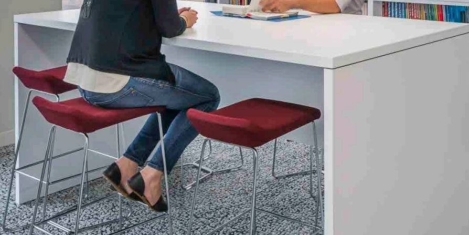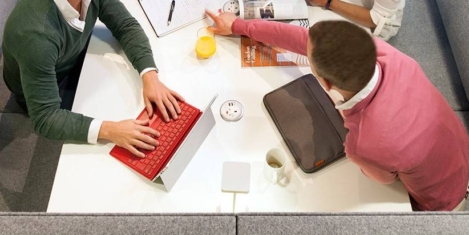April 2, 2019
The flat white economy is now the most important sector in the UK
According to a new study from the Centre for Economics and Business Research (CEBR) think tank, the so-called ‘flat white sector’ is now the most important driver of the UK economy. Consisting of the digital and creative businesses that cluster around areas like Silicon Roundabout in north-east London, the term has been coined by Douglas McWilliams, deputy chairman at the CEBR to reflect the way startups can apparently save on property costs by working out of coffee shops. McWilliams claims that the flat white economy contributed 14.4 per cent of gross value added (GVA) to the UK in 2018, making it more important than traditional sectors such as manufacturing, mining and utilities on that measure. (more…)














 New service charge rules which aim to ensure there are no hidden costs and clarity around disputes, come in to force today (1 April 2019) and are mandatory for RICS professionals. ‘Service charges in commercial property’ has been developed with industry leaders, including major property organisations and professional bodies to secure transparent, upfront and fair costs for businesses as part of the maintenance and upkeep of their building. Amongst the rules, any charges incurred by the tenant must be explained fully at the outset and in accordance with the terms of the occupational lease, whilst any upkeep costs not specifically mentioned or explained in a lease must be made irrecoverable from the tenant.
New service charge rules which aim to ensure there are no hidden costs and clarity around disputes, come in to force today (1 April 2019) and are mandatory for RICS professionals. ‘Service charges in commercial property’ has been developed with industry leaders, including major property organisations and professional bodies to secure transparent, upfront and fair costs for businesses as part of the maintenance and upkeep of their building. Amongst the rules, any charges incurred by the tenant must be explained fully at the outset and in accordance with the terms of the occupational lease, whilst any upkeep costs not specifically mentioned or explained in a lease must be made irrecoverable from the tenant.








 The economic performance of UK cities is increasingly dependent on the skills of their workforce. Cities across the UK face the challenge of both attracting and retaining high-skilled talent. The
The economic performance of UK cities is increasingly dependent on the skills of their workforce. Cities across the UK face the challenge of both attracting and retaining high-skilled talent. The 









April 2, 2019
A quarter of a century ago, the newborn Internet set office design on a different path
by Colin Watson • Comment, Furniture, Workplace design
(more…)